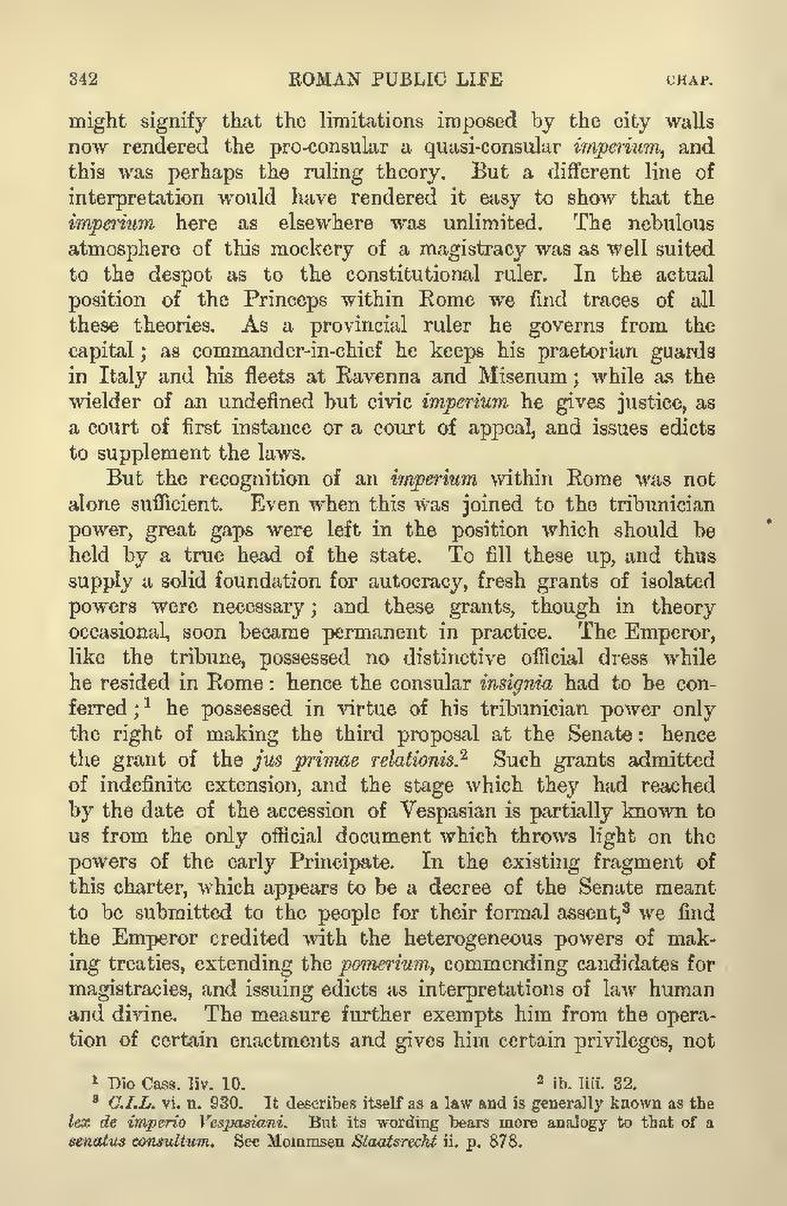might signify that the limitations imposed by the city walls now rendered the pro-consular a quasi-consular imperium, and this was perhaps the ruling theory. But a different line of interpretation would have rendered it easy to show that the imperium here as elsewhere was unlimited. The nebulous atmosphere of this mockery of a magistracy was as well suited to the despot as to the constitutional ruler. In the actual position of the Princeps within Rome we find traces of all these theories. As a provincial ruler he governs from the capital; as commander-in-chief he keeps his praetorian guards in Italy and his fleets at Ravenna and Misenum; while as the wielder of an undefined but civic imperium he gives justice, as a court of first instance or a court of appeal, and issues edicts to supplement the laws.
But the recognition of an imperium within Rome was not alone sufficient. Even when this was joined to the tribunician power, great gaps were left in the position which should be held by a true head of the state. To fill these up, and thus supply a solid foundation for autocracy, fresh grants of isolated powers were necessary; and these grants, though in theory occasional, soon became permanent in practice. The Emperor, like the tribune, possessed no distinctive official dress while he resided in Rome: hence the consular insignia had to be conferred;[1] he possessed in virtue of his tribunician power only the right of making the third proposal at the Senate: hence the grant of the jus primae relationis.[2] Such grants admitted of indefinite extension, and the stage which they had reached by the date of the accession of Vespasian is partially known to us from the only official document which throws light on the powers of the early Principate. In the existing fragment of this charter, which appears to be a decree of the Senate meant to be submitted to the people for their formal assent,[3] we find the Emperor credited with the heterogeneous powers of making treaties, extending the pomerium, commending candidates for magistracies, and issuing edicts as interpretations of law human and divine. The measure further exempts him from the operation of certain enactments and gives him certain privileges, not
